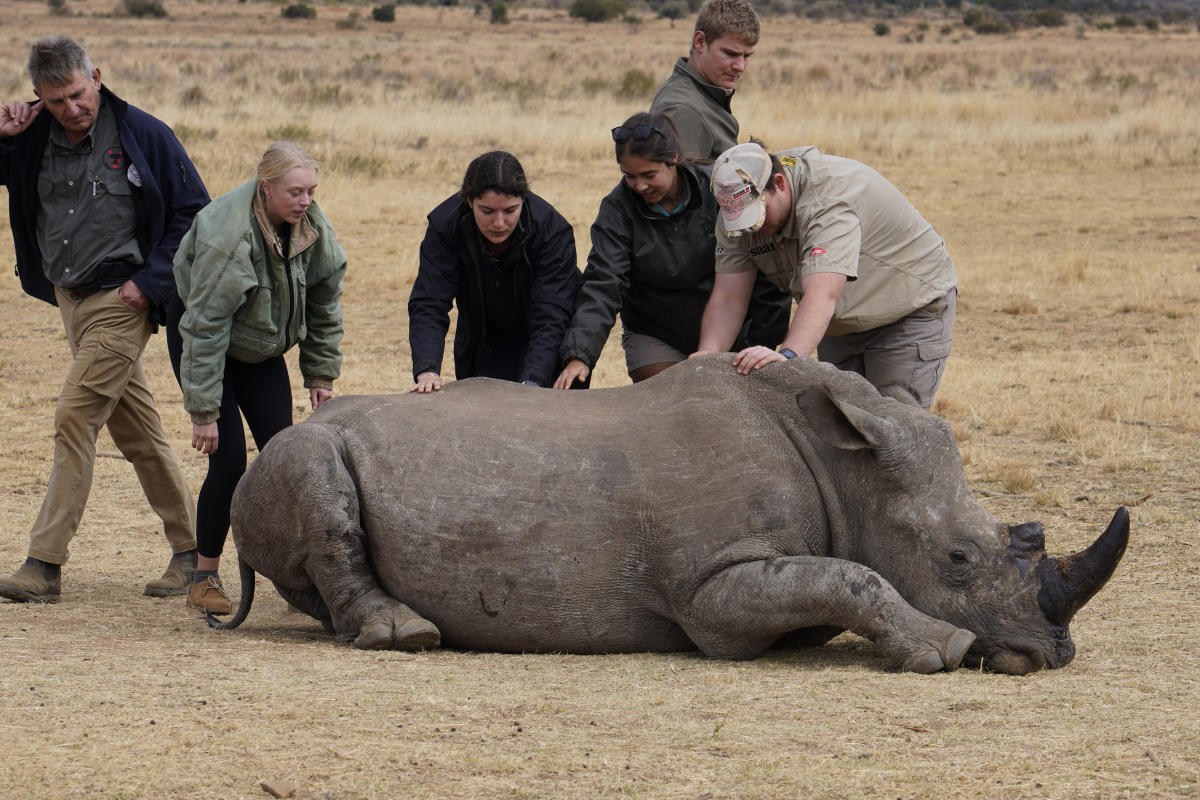MOKOPANE, South Africa (AP) — Researchers in South Africa have injected radioactive material into the horns of 20 rhinos as part of a research project aimed at curbing poaching.
The idea is that radiation detectors already in place at country borders will detect the horns and help authorities arrest poachers and smugglers.
The study, which involved veterinarians and nuclear experts, begins by anesthetizing the animal before drilling a hole in its horn and carefully inserting the nuclear material. This week, researchers from the Radiation and Health Physics Unit at the University of the Witwatersrand in South Africa injected 20 live rhinos with the isotopes. They hope the process can be repeated to save other wild species vulnerable to poaching, such as elephants and pangolins.
“We’re doing this because it becomes significantly easier to intercept these horns as they’re smuggled across international borders, because there’s a global network of radiation monitors that are designed to prevent nuclear terrorism,” said Professor James Larkin, who is leading the project. “And we’re riding on the back of that.”
According to figures from the International Union for Conservation of Nature, an international conservation body, the global rhino population was about 500,000 at the beginning of the 20th century. The number now stands at around 27,000, due to the continued demand for rhino horns on the black market.
South Africa has the largest population of rhinos, estimated at around 16,000. It is a hotspot where more than 500 rhinos are killed each year.
The country saw a significant drop in rhino poaching around 2020, at the height of the COVID-19 pandemic, but numbers increased as lockdown measures due to the virus were eased.
“We need to do something new and different to reduce poaching. You know, you’re going to see the numbers already go up,” Larkin said. “During Covid they were all down, but post-Covid we’re starting to see those numbers go up again.”
While the idea is supported by some in the industry, the researchers had to overcome many ethical hurdles raised by critics of their methodology.
Pelham Jones, president of the Private Rhino Owners Association, is among the critics of the proposed method and doubts whether it would effectively deter poachers and traders.
“(Poachers) have devised other ways to move rhino horn across the country, across the continent or off the continent, not through traditional border crossings,” he said. “They bypass the border crossings because they know this is the area. of greatest risk of seizure or interception.”
Professor Nithaya Chetty, dean of the Witwatersrand faculty of science, said the dose of radioactivity is very low and the possible negative impact on the animal has been extensively tested.






